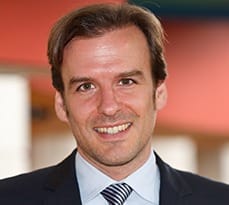Powerful bosses can be ‘blind’ to gaps in workplace connections between employees, finds new study co-authored by Dr Jochen Menges at Cambridge Judge Business School.

Have you ever felt that your powerful boss fails to introduce you to useful co-workers in your company? Can’t they see the opportunities such helpful connections could bring to your firm? Are they that oblivious?
A study just published in the Journal of Applied Psychology finds that feelings of power do “blind” people to the gaps that exist in workplace links: bosses in fact can’t see that some workers aren’t properly connected.
“The psychological experience of power diminishes individuals’ ability to perceive opportunities to broker between people who are not directly connected in their networks,” says the study. “Those who feel powerful are likely to be blind to the gaps between people.”
Paradoxically, such powerful people are actually more willing to “broker” such connections if made aware that such gaps exist – so this gulf between a powerful person’s perception and willingness to act means that they don’t take full advantage of the connecting opportunity their powerful position presents.
Conversely, people who feel less powerful tend to perceive the gaps in organisational networks, but may be less willing to take action because they this might be seen as overstepping their role’s boundaries.

“Powerful people tend to take a broader view of the workplace, often overlooking the fact that some people in their organisation are not connected, whereas less powerful people tend to look in more detail at workplace dynamics,” says study co-author Dr Jochen Menges, University Lecturer in Organisational Behaviour at Cambridge Judge Business School. “The findings suggest that those who feel powerful may fail to forge useful connections within the workplace because they simply don’t recognise that people aren’t already connected.”
The study, based on 330 US workers and 162 employees at a UK-based media agency, asked respondents questions such as whether work colleagues “listen to what I say” to assess feelings of powerfulness, and asked who they “go to for advice about important matters” to assess the network of relationships in the organisation and brokerage opportunities.
The paper – entitled “The paradox of agency: feeling powerful reduces brokerage opportunity recognition yet increases willingness to broker” – is co-authored by Dr Blaine Landis and Professor Martin Kilduff of University College London, Dr Jochen Menges of Cambridge Judge Business School and WHU-Otto Beisheim School of Management, and Professor Gavin Kilduff of New York University.
“We have uncovered differences between structural power, as defined by one’s structural opportunities, and feeling powerful,” the study concludes. “Power and brokerage, commonly thought to co-exist, may be in a state of tension, such that the more power the individual feels, the less brokerage the individual perceives.”
These findings “point to practical implications for those at both ends of the power continuum.” Whereas the powerful should rely on the less powerful to point them to gaps in the network of work relations, the powerless should prompt the powerful to do introductions to close those gaps.


